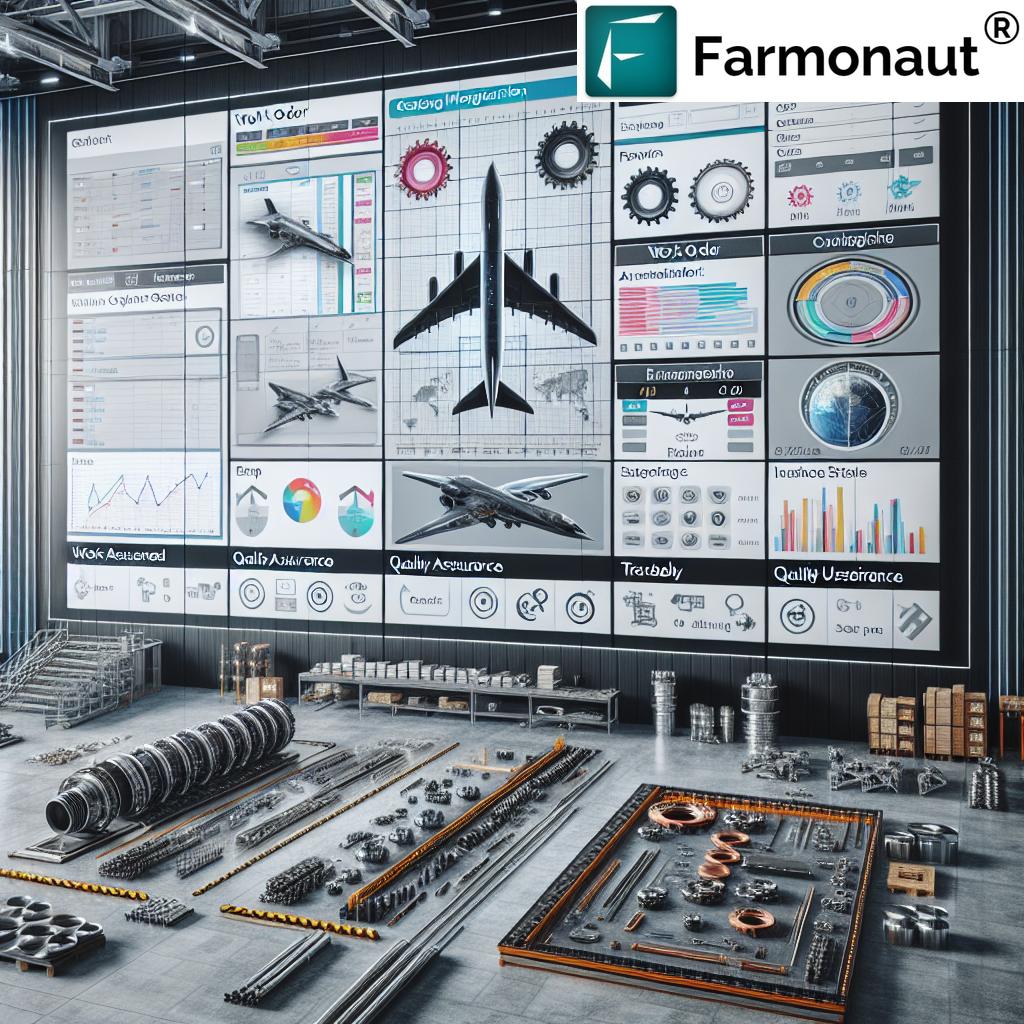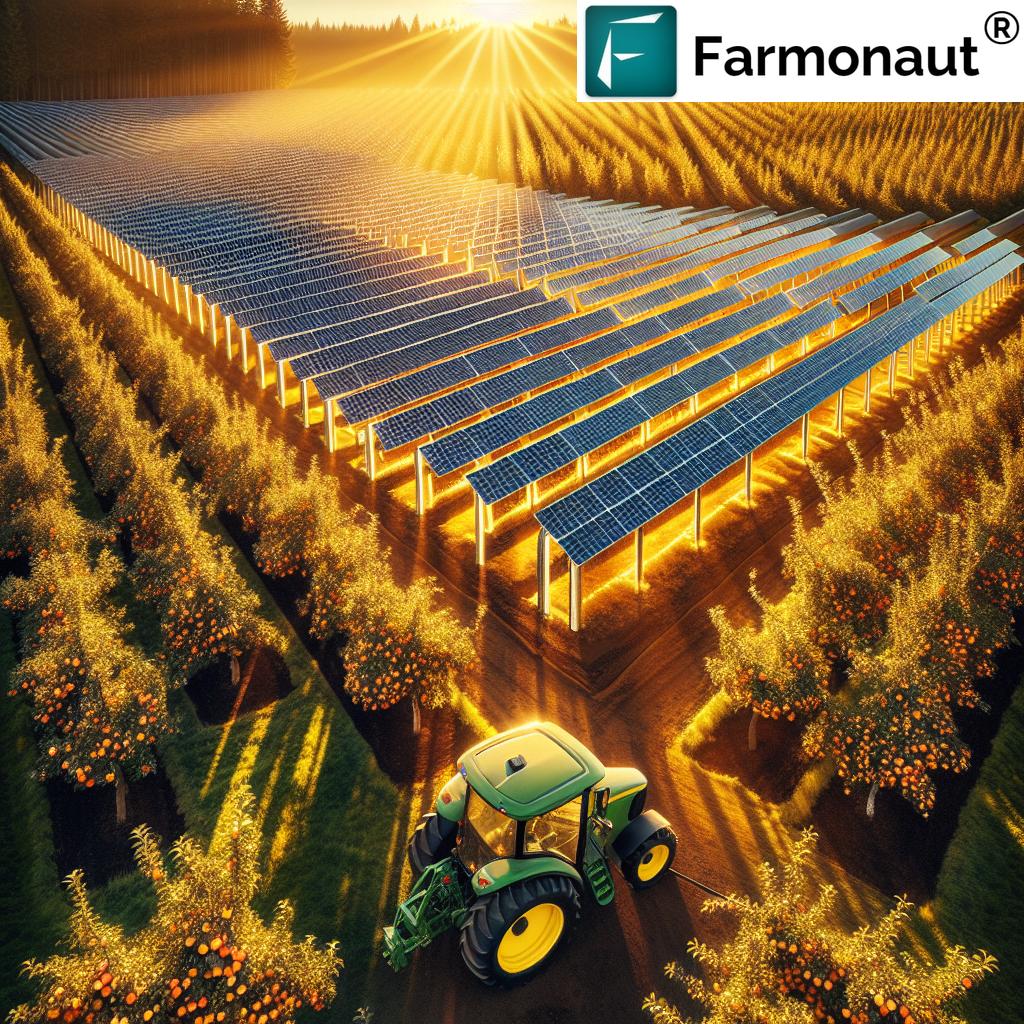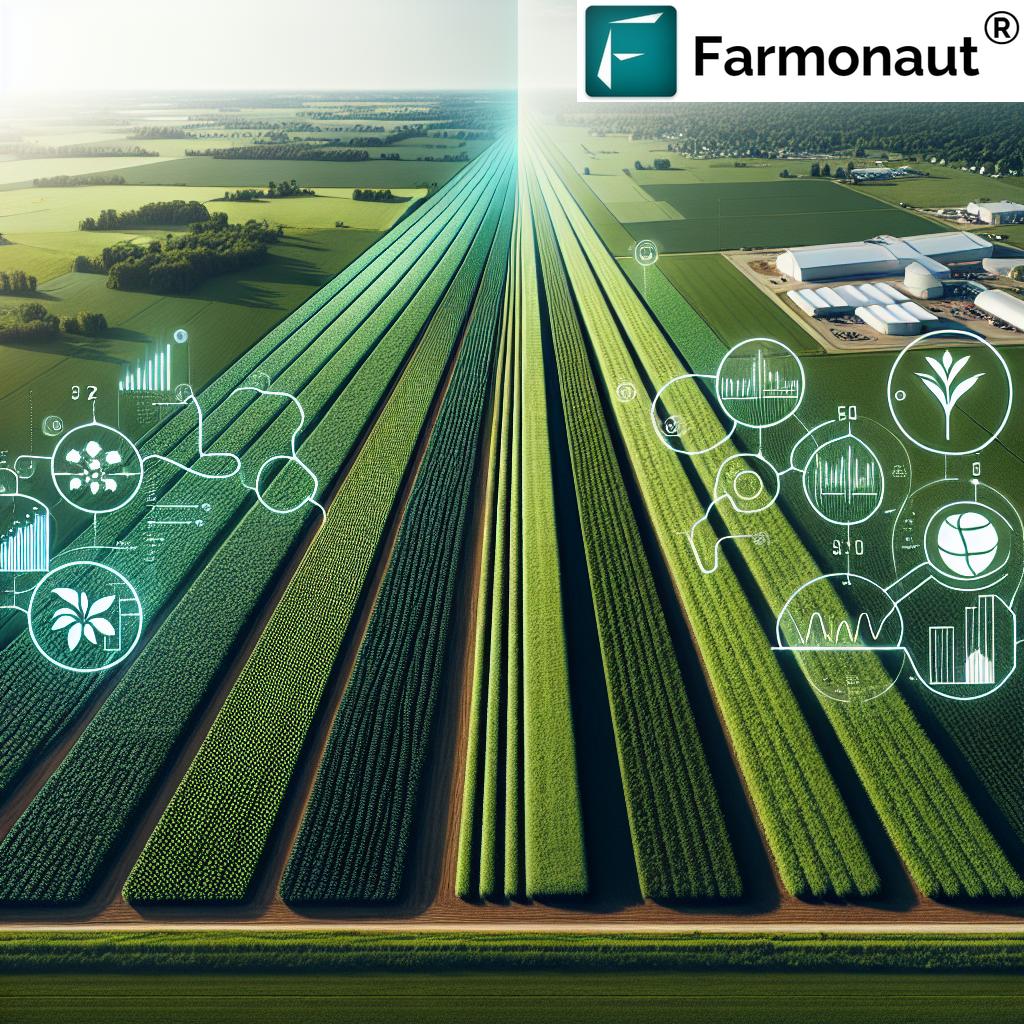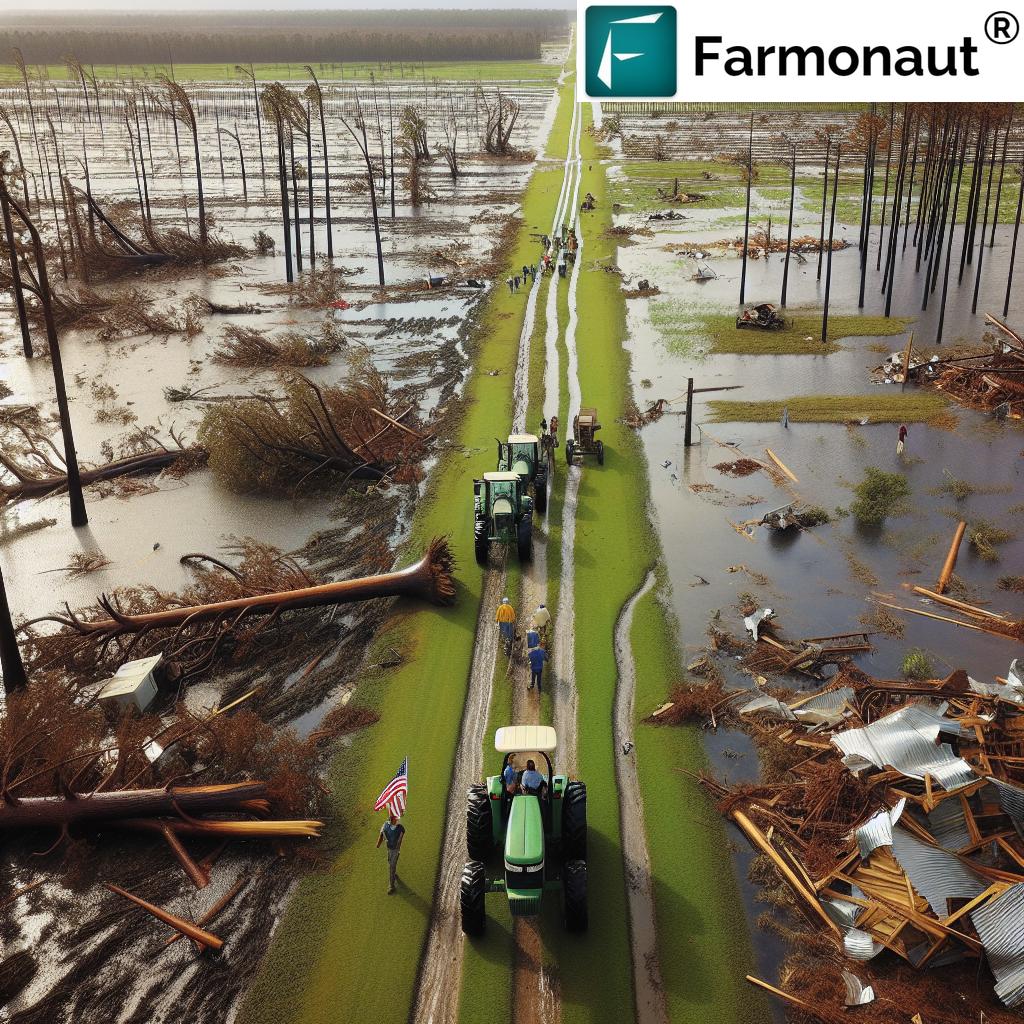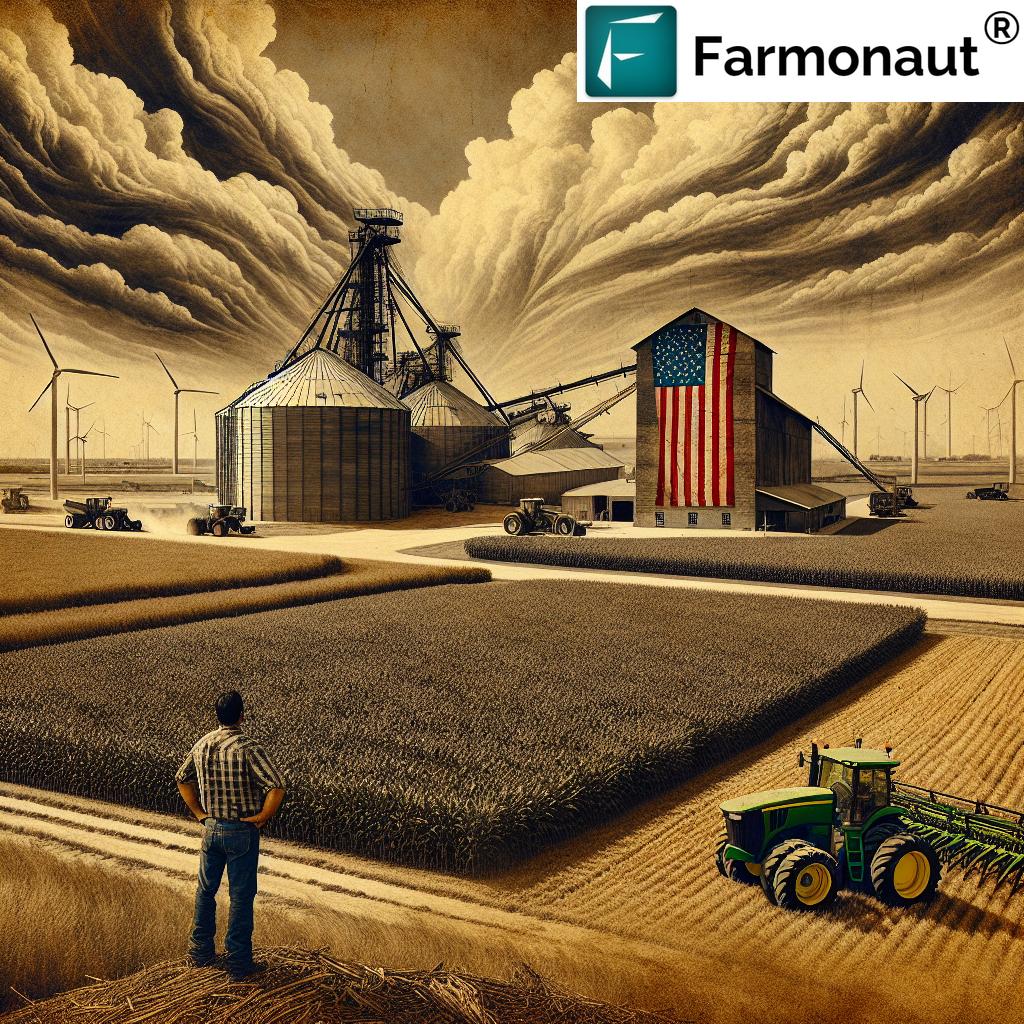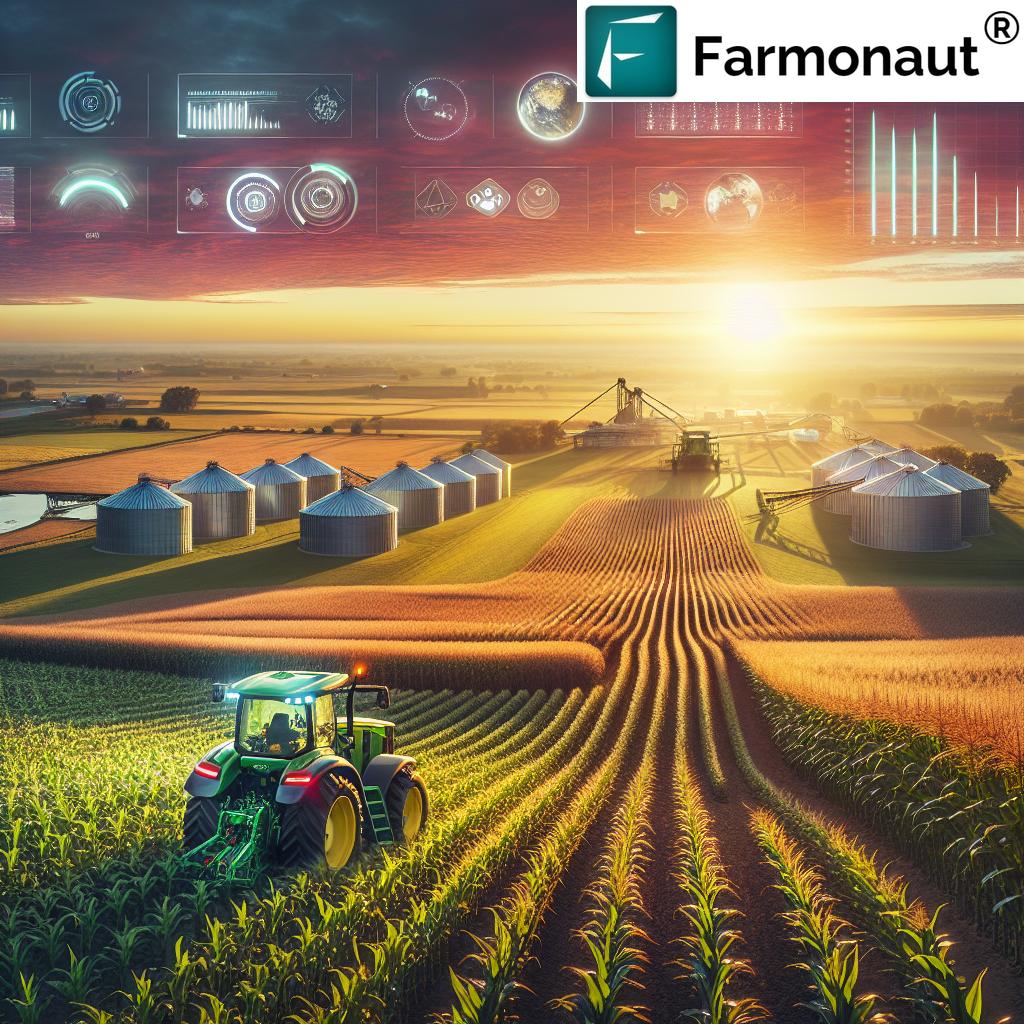Revolutionizing Food Safety: How AgTech Innovations Are Transforming Supply Chain Traceability in America
“A US biotech startup secured $12 million to develop edible microbial tags for precise food supply chain tracking.”
In the ever-evolving landscape of agriculture and food production, we are witnessing a remarkable transformation driven by cutting-edge agtech innovations. At the forefront of this revolution is a groundbreaking development in food traceability technology that promises to reshape the way we track, secure, and enhance our food supply chains. In this comprehensive exploration, we’ll delve into how synthetic biology in agriculture is paving the way for unprecedented advancements in food safety and sustainability.
The Dawn of Edible Microbial Tags: A Game-Changer in Food Traceability
The heart of this innovation lies in the development of edible microbial tags, a revolutionary concept that marries the worlds of biotechnology and agriculture. These microscopic markers are set to transform food supply chain tracking, offering a level of precision and reliability previously unattainable in the industry.
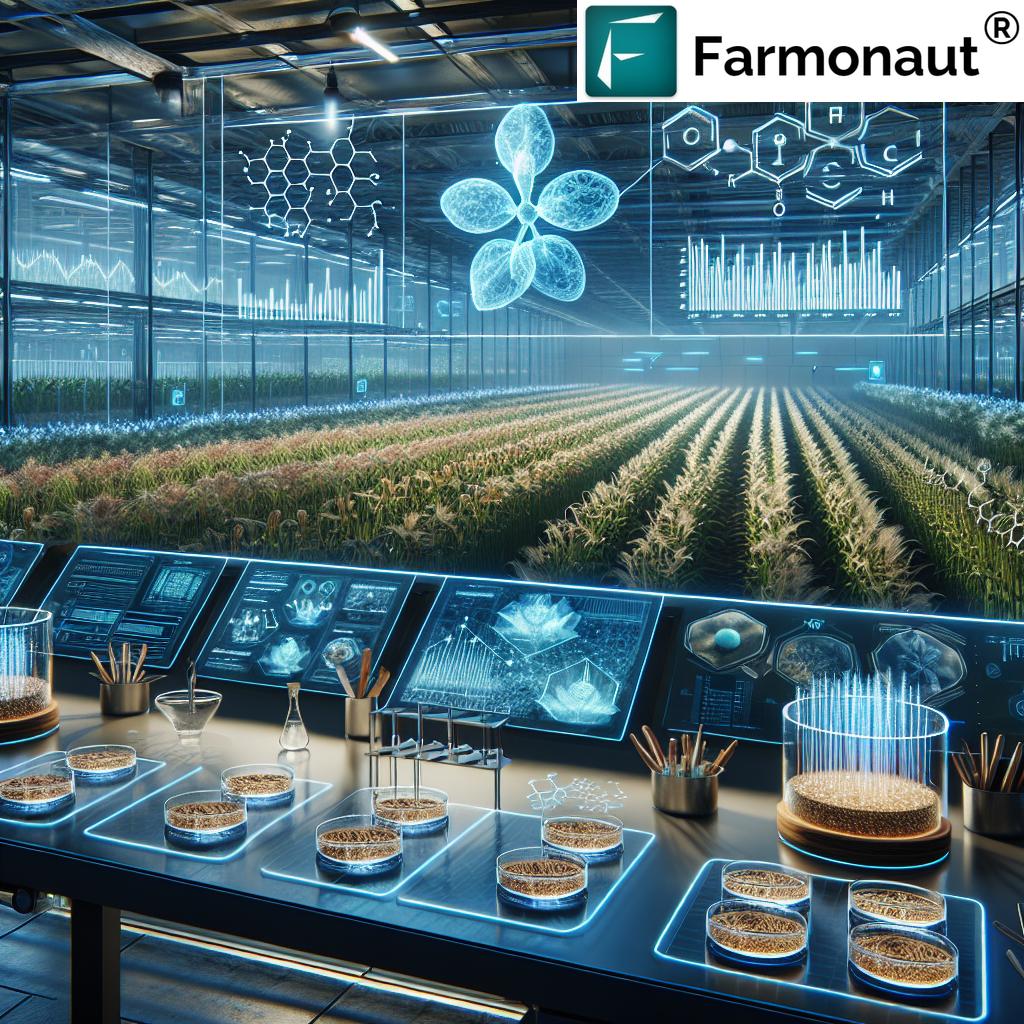
This groundbreaking technology is the brainchild of a US-based synthetic biology startup that has recently secured an impressive $12 million in funding. The investment underscores the immense potential and confidence in this agtech innovation to address critical challenges in food safety and traceability.
Understanding Edible Microbial Tags
Edible microbial tags are essentially invisible watermarks embedded within food products. These tags are:
- Completely safe for consumption
- Undetectable to the naked eye
- Capable of storing vast amounts of data
- Resistant to various food processing techniques
The technology behind these tags leverages the power of synthetic biology, creating microorganisms that can be programmed to carry specific information about the food product they’re attached to.
Transforming Food Supply Chain Tracking
The implementation of edible microbial tags in food products opens up a world of possibilities for supply chain management:
- Real-time tracking from farm to table
- Instant verification of product origin and journey
- Enhanced ability to detect and prevent food fraud
- Improved recall efficiency in case of contamination
This level of traceability is unprecedented in the food industry and has the potential to revolutionize how we manage and secure our food supply chains.
Foodborne Illness Prevention: A New Era
One of the most significant benefits of this agtech innovation is its potential to dramatically enhance foodborne illness prevention. By providing a complete history of a food product’s journey, these tags enable:
- Quick identification of contamination sources
- Rapid containment of potential outbreaks
- More targeted and efficient recall processes
- Improved consumer confidence in food safety
The ability to trace a product back to its exact source within minutes rather than days or weeks could save countless lives and significantly reduce the economic impact of foodborne illnesses.
Beyond Safety: Climate-Resilient Farming Solutions
The startup behind this technology isn’t stopping at food traceability. They’re also exploring ways to incorporate anti-fungal properties into their microbial tags, addressing another critical challenge in agriculture: food spoilage.
This dual-purpose approach demonstrates how agtech innovations can simultaneously tackle multiple issues in the food production chain:
- Reducing food waste through improved spoilage prevention
- Enhancing crop resilience against fungal diseases
- Contributing to more sustainable farming practices
- Adapting to climate change challenges in agriculture
Simulating Agricultural Environments: The Next Step
“The startup is expanding facilities to simulate agricultural environments and test their technology on various crops.”
To further develop and refine their technology, the startup is expanding its facilities to include controlled environments that simulate various agricultural conditions. This expansion will allow for:
- Testing the microbial tags on a wide range of crops
- Assessing performance under different climate conditions
- Refining the technology for optimal effectiveness
- Accelerating the path from lab to field application
This approach to research and development underscores the commitment to creating robust, versatile solutions that can be applied across diverse agricultural settings.
The Broader Impact on Agriculture and Food Security
The implications of this agtech innovation extend far beyond just food traceability. It has the potential to impact various aspects of agriculture and food security:
- Enhancing global trade by providing verifiable product origin
- Improving producer reputations through transparent supply chains
- Supporting sustainable farming practices with data-driven insights
- Addressing food security challenges in developing regions
By providing a comprehensive solution that addresses multiple challenges, this technology is poised to become a cornerstone in the future of agriculture.
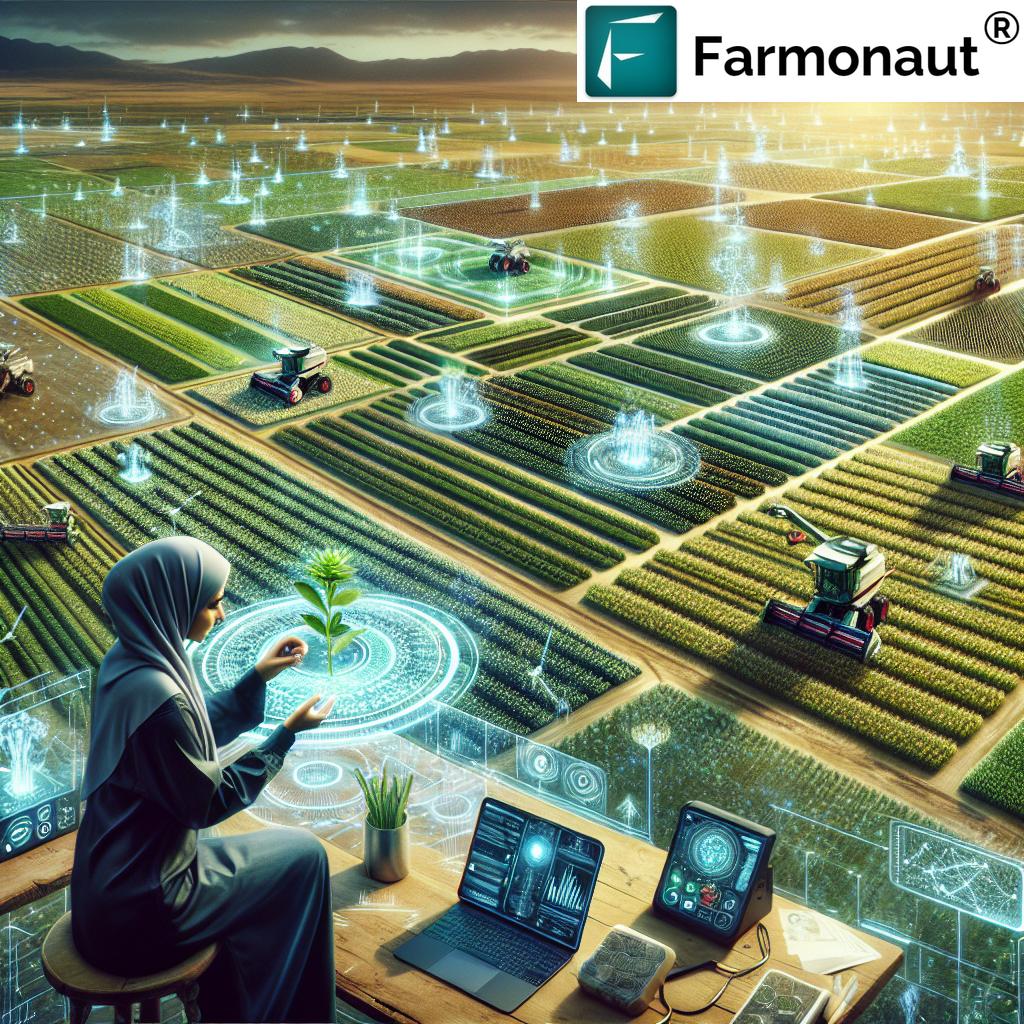
The Role of Data in Precision Agriculture
Central to these agtech innovations is the power of data. The microbial tags are not just markers; they’re data carriers that can provide invaluable insights into:
- Crop growth patterns
- Environmental factors affecting production
- Supply chain efficiencies and bottlenecks
- Consumer preferences and trends
This wealth of data feeds into the broader ecosystem of precision agriculture, enabling farmers and producers to make more informed decisions and optimize their operations.
Farmonaut: Complementing AgTech Innovations
In the context of these exciting developments, it’s worth noting how platforms like Farmonaut are contributing to the agtech revolution. While not directly involved in microbial tag technology, Farmonaut offers complementary solutions that enhance agricultural practices:
- Satellite-based crop health monitoring for real-time insights
- AI-driven advisory systems for optimized farming decisions
- Blockchain-based traceability solutions for supply chain transparency
- Resource management tools for efficient agriculture operations
These technologies align with the broader goals of improving food safety, enhancing traceability, and promoting sustainable farming practices.
For more information on Farmonaut’s satellite-based solutions, visit their API page or check out their API Developer Docs.
The Global Perspective: AgTech Across Continents
While our focus has been on developments in America, it’s important to recognize that agtech innovations are a global phenomenon. Countries across Europe, Asia, Africa, and the Middle East are all contributing to and benefiting from advancements in agricultural technology.
Some notable global trends include:
- Europe’s focus on sustainable and organic farming technologies
- Asia’s rapid adoption of IoT in agriculture
- Africa’s innovative use of mobile technology for smallholder farmers
- Middle East’s investments in vertical farming and desert agriculture
These global efforts collectively contribute to a more resilient and efficient global food system.
The Future of Food Production: A Data-Driven Revolution
As we look to the future, it’s clear that data will play an increasingly central role in food production. From farm to table, every step of the process will be informed by precise, real-time data. This shift promises to:
- Increase overall food production efficiency
- Reduce waste throughout the supply chain
- Enhance food safety and quality control
- Enable more personalized nutrition solutions
The integration of technologies like edible microbial tags, satellite monitoring, and AI-driven analytics is just the beginning of this data-driven agricultural revolution.
Challenges and Considerations
While the potential of these agtech innovations is immense, it’s important to address potential challenges:
- Ensuring data privacy and security in food traceability systems
- Addressing concerns about genetically modified organisms in food
- Bridging the technology gap for small-scale farmers
- Harmonizing international standards for food traceability
Addressing these challenges will be crucial for the widespread adoption and success of these new technologies.
The Investment Landscape in AgTech
The $12 million funding secured by the US-based startup is just one example of the growing investment interest in agtech. This trend reflects:
- Increasing recognition of agriculture’s critical role in global sustainability
- Growing consumer demand for transparent and safe food supply chains
- The potential for significant returns on investment in agricultural innovation
- A shift towards technology-driven solutions in traditional industries
As more investors recognize the potential of agtech, we can expect to see an acceleration in the development and deployment of innovative solutions.
AgTech Innovations in Food Safety and Traceability: A Comparative Analysis
| Aspect | Traditional Methods | AgTech Innovations | Benefits |
|---|---|---|---|
| Supply Chain Tracking | Paper-based, prone to errors | Edible microbial tags, real-time tracking | Enhanced accuracy, instant traceability |
| Foodborne Illness Prevention | Reactive approach, slower detection | Proactive monitoring, rapid identification | Faster response, reduced outbreak risk |
| Outbreak Containment | Days to weeks for source identification | Minutes to hours for precise tracing | Minimized health risks, economic losses |
| Food Spoilage Prevention | Limited shelf-life extension methods | Anti-fungal properties in tags | Extended shelf life, reduced food waste |
| Climate Resilience | Vulnerable to climate changes | Data-driven adaptations, resilient crops | Improved crop survival, stable yields |
| Data Precision | Limited, often retrospective data | Real-time, comprehensive data collection | Informed decision-making, optimization |
| Implementation Cost (estimated) | Low initial, high long-term costs | Higher initial, lower long-term costs | Long-term cost savings, efficiency gains |
| Time Efficiency (estimated) | Time-consuming manual processes | Automated, instant data retrieval | Significant time savings, quick responses |
The Role of Startups in Driving Innovation
Startups play a crucial role in driving agtech innovations. Their agility and focus on specific problems allow them to:
- Develop targeted solutions for niche agricultural challenges
- Rapidly prototype and iterate new technologies
- Bridge the gap between academic research and practical applications
- Challenge established industry practices with fresh perspectives
The success of startups in this space is indicative of the industry’s readiness for transformation and the vast potential for innovation in agriculture.
Explore Farmonaut’s innovative solutions by downloading their app:


The Convergence of Technologies in Modern Agriculture
The development of edible microbial tags is just one example of how various technologies are converging to transform agriculture:
- Blockchain for secure and transparent supply chains
- IoT devices for real-time field monitoring
- AI and machine learning for predictive analytics
- Robotics for automated farming operations
This convergence is creating a new paradigm in agriculture, where data, technology, and biology work in harmony to produce safer, more sustainable food.
The Impact on Consumer Trust and Brand Reputation
As these technologies become more prevalent, they will significantly impact consumer trust and brand reputation in the food industry:
- Increased transparency leading to greater consumer confidence
- Ability for brands to substantiate claims about origin and quality
- Potential for premium pricing for fully traceable products
- Improved brand loyalty through demonstrated commitment to safety and quality
Companies that embrace these technologies early may gain a significant competitive advantage in the market.
The Role of Government and Regulatory Bodies
As agtech innovations continue to evolve, the role of government and regulatory bodies will be crucial:
- Developing new standards for food traceability and safety
- Ensuring the ethical use of biotechnology in food production
- Providing incentives for the adoption of sustainable farming practices
- Facilitating international cooperation on food safety and trade
Effective regulation will be key to ensuring that these technologies are implemented safely and ethically while fostering innovation.
Education and Skill Development in AgTech
The rise of agtech innovations highlights the need for new skills and knowledge in the agricultural workforce:
- Training farmers in the use of new technologies
- Developing interdisciplinary educational programs combining agriculture, biology, and technology
- Creating awareness about the benefits of precision agriculture
- Fostering a culture of innovation in traditional farming communities
Investing in education and skill development will be crucial for the successful implementation of these new technologies.
The Future of Food: Personalized and Precision Agriculture
Looking ahead, the convergence of agtech innovations like edible microbial tags with other technologies points to a future of personalized and precision agriculture:
- Tailored nutrition based on individual genetic profiles
- Micro-targeted crop treatments for optimal yield and quality
- Predictive models for crop planning and resource allocation
- Seamless integration of farm-to-table processes
This future promises not only safer and more sustainable food production but also the potential for food to be tailored to individual health needs and preferences.
Conclusion: A New Era in Agriculture and Food Safety
The development of edible microbial tags and other agtech innovations marks the beginning of a new era in agriculture and food safety. These technologies promise to revolutionize how we produce, track, and consume food, addressing critical challenges in food safety, sustainability, and efficiency.
As we move forward, the collaboration between startups, established companies, research institutions, and regulatory bodies will be crucial in realizing the full potential of these innovations. The future of agriculture is data-driven, precision-focused, and deeply intertwined with cutting-edge technology.
For consumers, these advancements mean safer food, greater transparency, and the potential for more personalized nutrition. For producers, they offer tools to increase efficiency, reduce waste, and build stronger brand trust. And for the planet, they provide hope for more sustainable and resilient food systems in the face of climate change and growing global demand.
As we embrace this technological revolution in agriculture, we step into a future where our food is not only more abundant and accessible but also safer, more traceable, and more sustainable than ever before.
Experience the future of agriculture with Farmonaut’s web app:

FAQ Section
Q: What are edible microbial tags?
A: Edible microbial tags are microscopic, safe-to-consume markers embedded in food products. They act as invisible watermarks, storing detailed information about the food’s journey through the supply chain.
Q: How do edible microbial tags improve food safety?
A: These tags enable rapid and precise tracking of food products, allowing for quick identification of contamination sources and efficient recall processes, thus significantly enhancing foodborne illness prevention and outbreak containment.
Q: Are edible microbial tags safe for consumption?
A: Yes, these tags are designed to be completely safe for human consumption. They are developed using synthetic biology techniques that ensure they are non-toxic and do not affect the food’s taste or quality.
Q: How do these tags contribute to sustainable farming?
A: Beyond traceability, some microbial tags are being developed with anti-fungal properties, which can help prevent food spoilage and reduce waste. This contributes to more sustainable farming practices and helps address challenges related to climate change.
Q: Will this technology increase the cost of food products?
A: While there may be initial implementation costs, the long-term benefits in terms of improved safety, reduced waste, and increased efficiency are expected to offset these costs, potentially leading to more stable food prices.
Q: How does this technology compare to other traceability methods like QR codes?
A: Unlike external labels or QR codes, edible microbial tags are integrated directly into the food product, making them impossible to tamper with or remove. They also provide more detailed and secure information throughout the entire supply chain.
Q: Can consumers access the information stored in these tags?
A: While the technology is primarily designed for supply chain management and food safety, there’s potential for consumer-facing applications in the future, possibly through smartphone apps that could read and interpret the tag information.
Q: How does this innovation impact small-scale farmers?
A: This technology has the potential to level the playing field for small-scale farmers by providing them with advanced traceability tools. It could help them prove the origin and quality of their products, potentially accessing new markets and premium prices.
Q: What role do government regulations play in the adoption of this technology?
A: Government regulations will be crucial in setting standards for the use of edible microbial tags, ensuring their safety, and potentially mandating their use in certain food categories to enhance overall food safety and traceability.
Q: How does this technology integrate with other AgTech innovations?
A: Edible microbial tags can integrate with other AgTech solutions like AI-driven analytics, blockchain for supply chain management, and IoT devices for field monitoring, creating a comprehensive ecosystem for precision agriculture and food safety.


